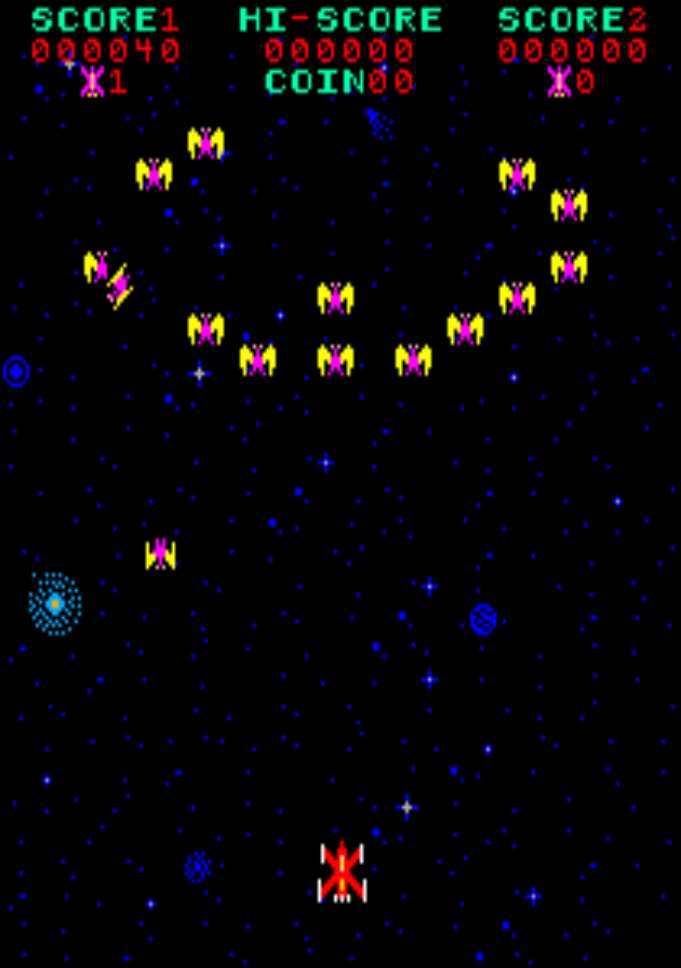Phoenix
Rise from the Fire You Alien Scum.
The simplistic concept of the initial arcade shooter was somewhat short lived. Left, right and fire had proved to be a successful formula for a vast number of releases after the arrival of the seminal Space Invaders in 1978. To ensure the continuing success of the arcades, however, publishers had to innovate.
Released by Taito in 1980, Phoenix propelled game play mechanics forward by introducing the concept of 'bosses' to the arcade goer - larger than life baddies that had to be destroyed in order for the player to continue on their quest for the high score position.
The player controls their ubiquitous space craft at the bottom of the screen; inheriting the traditional left, right and fire shooter mechanics of its arcade brethren. In addition, a short-lived shield is provided that, once activated, gives the player's ship seconds of protection through four levels of onslaught from phoenix propelled missiles and kamikaze birds of fury that launch down the screen in waves as they home in on your modest spacecraft.
The psychedelic 'mother' of all mother ships greets the player in awe-inspiring fashion in the final level, spewing forth missiles and phoenix as it descends down the screen towards your vulnerable vessel. After the bosses that have appeared since in titles such as R-type and Nemesis, this ship of doom looks pretty rubbish and instils as much fear and panic in the player as an ant in a China shop.

A nod of the head must go to the fabulous artwork adorning both the sides of the upright Phoenix cabinet and control panel. The beauty of the cabinet, accompanied by a busy and colourful attract mode drew passing gamers in like a Siren hypnotising their next kill.
Phoenix is an addictive blaster that never fails to invoke the "one more go" desire in the player. The sheer simplicity of its design accompanied by the fantastic looking cabinet insists the player comes back to this classic game for more.







